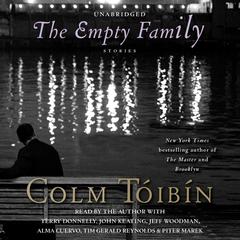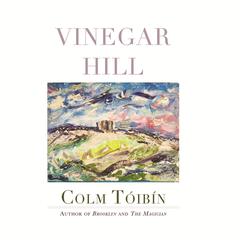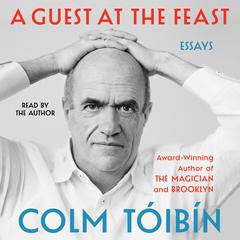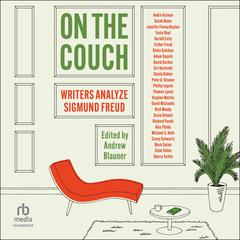 Play Audiobook Sample
Play Audiobook Sample
New Ways to Kill Your Mother: Writers and Their Families Audiobook
 Play Audiobook Sample
Play Audiobook Sample
Quick Stats About this Audiobook
Total Audiobook Chapters:
Longest Chapter Length:
Shortest Chapter Length:
Average Chapter Length:
Audiobooks by this Author:
Publisher Description
In a brilliant, nuanced, and wholly original collection of essays, the bestselling and award-winning author of Brooklyn and The Empty Family offers a fascinating exploration of famous writers' relationships to their families and their work.
From Jane Austen's aunts to Tennessee Williams' mentally ill sister, the impact of intimate family dynamics can be seen in many of literature's greatest works. In New Ways to Kill Your Mother, Colm T├│ib├¡n—celebrated both for his award-winning fiction and his provocative book reviews and essays, and currently the prestigious Mellon Professor in the Humanities at Columbia—traces and interprets those intriguing, eccentric, often twisted family ties.
Through the relationship between W. B. Yeats and his father, Thomas Mann and his children, and J. M. Synge and his mother, Tóibín examines a world of relations, richly comic or savage in its implications. In Roddy Doyle's writing on his parents, Tóibín perceives an Ireland reinvented. From the dreams and nightmares of John Cheever's journals, Tóibín illuminates this darkly comic misanthrope and his relationship to his wife and his children. "Educating an intellectual woman," Cheever remarked, "is like letting a rattlesnake into the house." Acutely perceptive and imbued with rare tenderness and wit, New Ways to Kill Your Mother is a thought-provoking look at writers' most influential bonds and a secret key to reading and enjoying their work.
Download and start listening now!
"Excellent collection of essays about writers and their families -- and the perfect way to prepare for the upcoming Key West Literary Seminar, where Toibin will be appearing. I love this kind of non-academic literary criticism, written for readers."
— Nan (4 out of 5 stars)
Quotes
-
“Mr. Toibin is such an adept and morally serious close reader that his criticism becomes nearly as galvanizing as his fiction. There really aren’t, it turns out, any new ways to kill your mother, at least not artistically. But all the old ways, in Mr. Toibin’s telling, still work rather beautifully.”
— New York Times -
“[A] lively exploration of writers and their families…There’s more storytelling than analysis, but the gossip is fascinating. Let’s just say Thomas Mann’s family is one that both Freud and V. C. Andrews would’ve loved.”
— Entertainment Weekly -
“Colm Tóibín is a masterly novelist who is also a fine critic. New Ways to Kill Your Mother is most alive when these two sensibilities merge, and Mr. Tóibín shows the ways in which the imagination preys on personal history. One comes away with the unsubtle but powerful conclusion that a successful artist is one who learns, early on, to reimagine conflict; who is capable, as a result, of creating art more true and more telling than the quotidian realities thieved to make it.”
— Wall Street Journal -
“Good biographers are rightly wary of tracing lines of cause and effect between a writer’s life and work; it takes a novelist’s leap of imagination and power of compressed suggestion to risk mixing them up as boldly as Tóibín does here…Enjoyably readable.”
— Guardian (London) -
“Tóibín finds an engaging multiplicity of detail. And his critical voice is as seductive as the widely varying voices in his novels…Throughout the collection, Tóibín’s voice retains authority while also displaying some of the protean qualities of his fiction. He argues with himself often, not afraid to show us his critical restlessness, his change of mind. The sense of the writer as a perpetual wanderer is what makes these essays so lively: the house of literature has many mansions, and Tóibín is keen to tour them all.”
— Christian Science Monitor -
“Fascinating…New Ways to Kill Your Mother not only illuminates the lives of writers we admire, but also raises subtle questions about the relatives we have, wish we had, or wish we didn’t. Editor’s recommendation.”
— Barnes & Noble, editorial review -
“Irish novelist and essayist Tóibín (Brooklyn, 2009, etc.) investigates how writers’ classic works were inspired by their families—and sometimes in spite of them…But like all fine critics, Tóibín inspires readers to go back to the work, and he brings a human aspect to the works of seemingly deracinated authors like Beckett and Jorge Luis Borges…It’s a pleasure to watch Tóibín rove through nineteenth- and twentieth-century literary history.”
— Kirkus Reviews
New Ways to Kill Your Mother Listener Reviews
-
" I think I should give this book, or rather myself, a second chance - . "
— Sigrun, 9/19/2013 -
" Though it was not at all what I expected, I really enjoyed this book. I have a lot of books by Toibin on my to-read list, and I love his writing style. This makes me want to read more of his fiction. "
— Saxamaholly, 8/13/2013 -
" Intriguing exploration on how authors are influenced by their family. "
— Marie, 7/5/2013 -
" I've never read an entire collection of literary criticism (if that's what this really is), let alone wanted to - Toibin is scandalous, clever, perhaps biased, but who cares? It's good writing. "
— Olivia, 12/10/2012 -
" You think with a name like that it would be damn hard to be so boring but he finds a way don't worry "
— Elle, 10/20/2012
About Colm Tóibín
Colm Tóibín is an Irish novelist, short story writer, essayist, playwright, journalist, critic, and poet. His novel The Master won the International IMPAC Dublin Literary Award, the Prix du Meilleur Livre Étranger, the Los Angeles Times Book Prize for Fiction, and was short-listed for the Man Booker Prize. His other books of fiction have earned similar awards and have been translated into numerous languages. He lives in Dublin, Ireland.
About Gerard Doyle
Gerard Doyle, a seasoned audio narrator, he has been awarded dozens of AudioFile Earphones Awards, was named a Best Voice in Young Adult Fiction in 2008, and won the prestigious Audie Award for best narration. He was born of Irish parents and raised and educated in England. In Great Britain he has enjoyed an extensive career in both television and repertory theater and toured nationally and internationally with the English Shakespeare Company. He has appeared in London’s West End in the gritty musical The Hired Man. In America he has appeared on Broadway in The Weir and on television in New York Undercover and Law & Order. He has taught drama at Ross School for the several years.






































